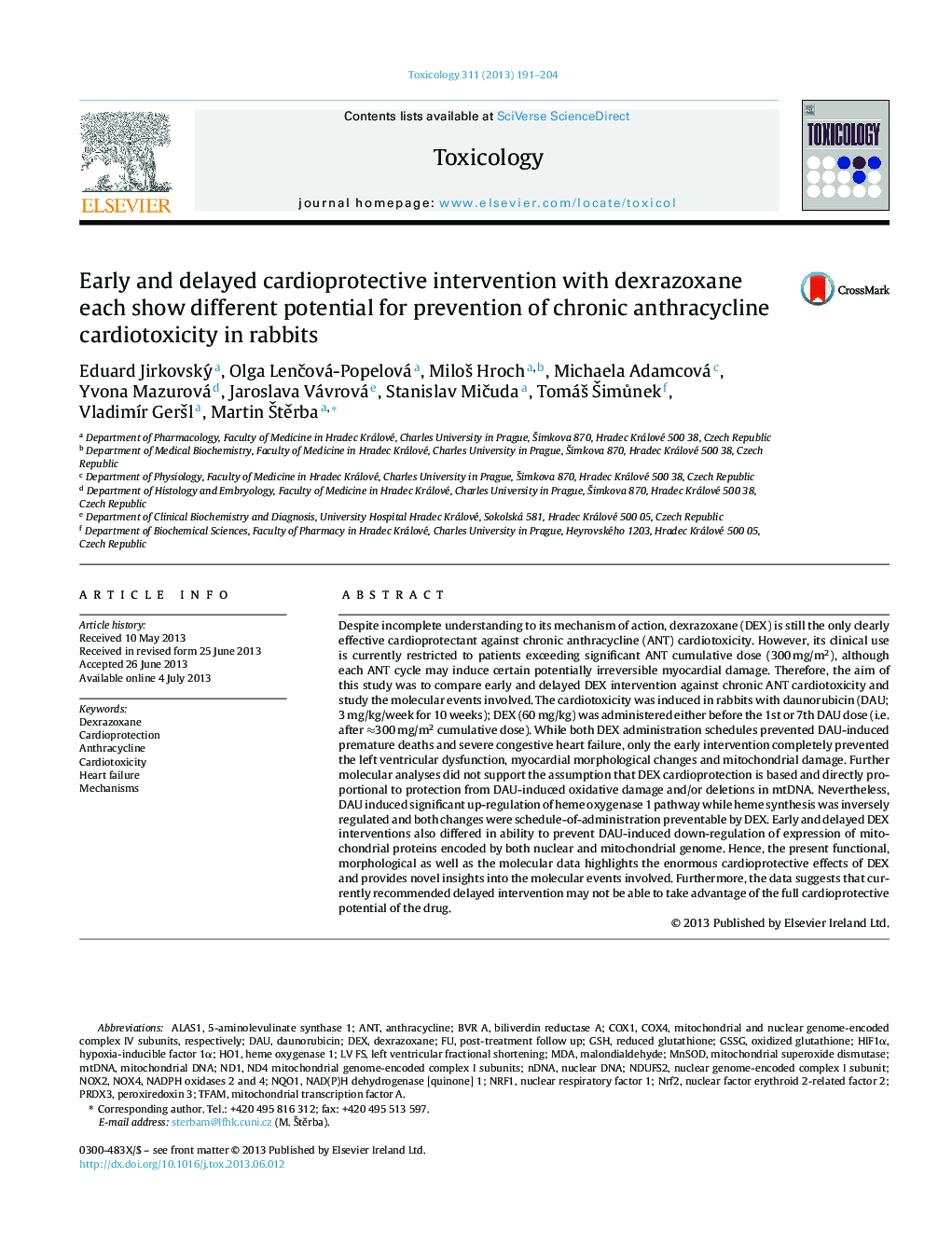| Article ID | Journal | Published Year | Pages | File Type |
|---|---|---|---|---|
| 5859250 | Toxicology | 2013 | 14 Pages |
Abstract
Despite incomplete understanding to its mechanism of action, dexrazoxane (DEX) is still the only clearly effective cardioprotectant against chronic anthracycline (ANT) cardiotoxicity. However, its clinical use is currently restricted to patients exceeding significant ANT cumulative dose (300Â mg/m2), although each ANT cycle may induce certain potentially irreversible myocardial damage. Therefore, the aim of this study was to compare early and delayed DEX intervention against chronic ANT cardiotoxicity and study the molecular events involved. The cardiotoxicity was induced in rabbits with daunorubicin (DAU; 3Â mg/kg/week for 10 weeks); DEX (60Â mg/kg) was administered either before the 1st or 7th DAU dose (i.e. after â300Â mg/m2 cumulative dose). While both DEX administration schedules prevented DAU-induced premature deaths and severe congestive heart failure, only the early intervention completely prevented the left ventricular dysfunction, myocardial morphological changes and mitochondrial damage. Further molecular analyses did not support the assumption that DEX cardioprotection is based and directly proportional to protection from DAU-induced oxidative damage and/or deletions in mtDNA. Nevertheless, DAU induced significant up-regulation of heme oxygenase 1 pathway while heme synthesis was inversely regulated and both changes were schedule-of-administration preventable by DEX. Early and delayed DEX interventions also differed in ability to prevent DAU-induced down-regulation of expression of mitochondrial proteins encoded by both nuclear and mitochondrial genome. Hence, the present functional, morphological as well as the molecular data highlights the enormous cardioprotective effects of DEX and provides novel insights into the molecular events involved. Furthermore, the data suggests that currently recommended delayed intervention may not be able to take advantage of the full cardioprotective potential of the drug.
Keywords
NRF1HO1PRDX3MDANDUFS2ND1HIF1αALAS1NQO1DEXTFAMMnSODANTGSSGNrf2GSHnDNAMitochondrial DNANuclear DNADAUAnthracyclineCardioprotectionDaunorubicinDexrazoxanemtDNACardiotoxicityMitochondrial superoxide dismutasehypoxia-inducible factor 1αNuclear respiratory factor 1nuclear factor erythroid 2-related factor 2malondialdehydeMechanismsheart failureheme oxygenase 1peroxiredoxin 3reduced glutathioneleft ventricular fractional shorteningoxidized glutathione
Related Topics
Life Sciences
Environmental Science
Health, Toxicology and Mutagenesis
Authors
Eduard Jirkovský, Olga LenÄová-Popelová, MiloÅ¡ Hroch, Michaela Adamcová, Yvona Mazurová, Jaroslava Vávrová, Stanislav MiÄuda, TomáÅ¡ Å imůnek, VladimÃr GerÅ¡l, Martin Å tÄrba,
